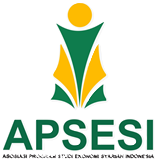PRAKTIK TABUNGAN MASYARAKAT PEDESAAN DALAM PERSPEKTIF FIKIH MUAMALAH
DOI:
https://doi.org/10.53491/oikonomika.v1i1.66Keywords:
Savings Practices, Wadiah yad adh-Dhamanah, Bad CreditAbstract
This thesis aims to analyze Ngudi Tentrem's savings practices from the perspective of fiqh muamalah in 4th Neighborhood, 2nd Hamlet, Ongan Jaya Village, Yapsi District, Jayapura Regency. This research also discusses the management's efforts to resolve the bad credit problems experienced by Ngudi Tentrem's savings practice. This study is qualitative research using primary and secondary data. The data analysis technique used is the phenomenological paradigm approach. The results of this study indicate that Ngudi Tentrem's savings practices in Ongan Jaya Village are carried out under the pillars and conditions of al-wadi'ah yad adh-dhamanah which involve the contract of two people who have faith, the existence of goods entrusted, and also ijab and qabul. The effort is restructuring which the management will provide interest relief and extension of time to creditors to save trouble to fulfill his obligations. The other way to resolve the bad credit problem is to settle with deliberation peacefully. The phenomenon of the survival of Ongan Jaya village savings is the culture of mutual aid which is still very thick in rural areas. Sense of solidarity and trust make this savings can be borne from its inception in 1997 until now, even though it does not have an official legal entity. The absence of collateral in these savings also adds to the value of its uniqueness, so, the people of Ongan Jaya village, especially, 4th Neighborhood, 2nd Hamlet prefer to choose Ngudi Tenrem savings practice.
Downloads
References
Ahmad Ifham, Ahmad. (2015). Ini Lho Bank Syariah: Memahami bank syariah dengan mudah. Jakarta: PT Gramedia Pustaka Utama.
Andrianto. (2020). Manajemen Kredit Teori dan Konsep bagi Bank Umum. Pasuruan: CV Penerbit Qiara Media.
Anggoto, Albi dkk. (2018). Metodologi Penelitian Kualitatif. Sukabumi: CV Jejak
Ebta Setiawan, (2012), KBBI Online: Pengertian Praktik, (Online), (http://kbbi.web.id, diakses 28 Februari 2020).
Eko Riwayati, (15 Maret 2020) wawancara pribadi
Hadi, Muhmmad. (2019). Paradiqma Masterpiece Keuangan Islam dan Aplikasi di Perbankan Syariah.Yogyakarta:CV Budi Utama.
Hadinoto, Soetanto. (2008). Bank Strategy on Funding and Liability Management Jakarta: PT Gramedia.
Harun. (2017). Fiqh Muamalah.Surakarta: Muhammad University Press.
http://INSuarjana,WCipta,AZukri-Jurnal Pendidikan 2015-ejournal.undiksha.ac.id.
http://N Halimah-2017-repository-iainpurwokerto.ac.id.
Ismail. (2011). Perbankan Syariah. Jakarta: Kencana.
Kuswarno, Engkus. (2009). Metodologi Penelitian Komunikasi Fenomenologi: Konsepsi, Pedoman, dan Contoh penelitiannya. Bandung: Widya Padjadjaran.
Muryadi. (12 April 2020) wawancara pribadi.
Paulin Kay, Vera. (2013). Tabungan dan Variabel Ekonomi Makro yang Mempengaruhi di Kota Ambon, Politeknik Negeri Ambon No. 1.
Pujiati, (15 Maret 2020) wawancara pribadi.
Sa’diyah, Muhdayatus, (2019). Fiqih Muamalah II Teori dan Praktik. Jepara: UNISNU PRESS.
Setyawan, Rene. (1994). Pengimpunan Dana. Medan: Universitas Sumatra Utara.
Soemitra, Andri. (2016). Bank & Lembaga Keuangan Syariah Medan: KENCANA.
Sri Mulyani, (15 Maret 2020) wawancara pribadi.
Sugyiono. (2014). Memahami Penelitian Kualitatif. Bandung: Alfabet.
Sujana. (2005). Strategi pembelajaran. Bandung: Falah Production.
Sutini, (15 Maret 2020) wawancara pribadi.
Usman, Racmadi. (2003). Aspek-Aspek Hukum Perbankan di Indonesia. Jakarta: PT. Gramedia Pustaka Utama.
Wardi Muslich, Ahmad. (2010). Fiqh Muamalah. Jakarta: Sinar Grafika Offset.
Widayanti, Nuning. (2015). 3 Tabungan Cerdas Anak. Jakarta: Trans Media Perkasa.
Downloads
Published
How to Cite
Issue
Section
License

This work is licensed under a Creative Commons Attribution-ShareAlike 4.0 International License.







